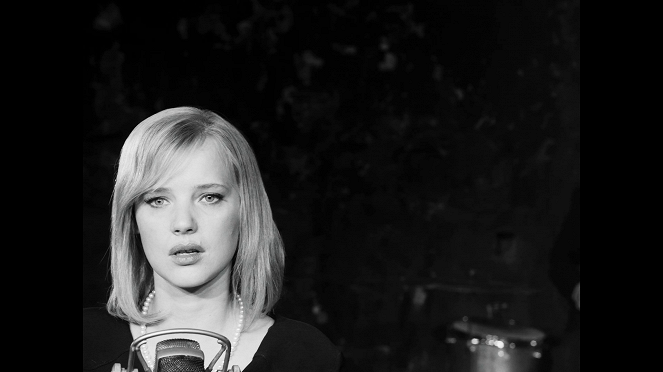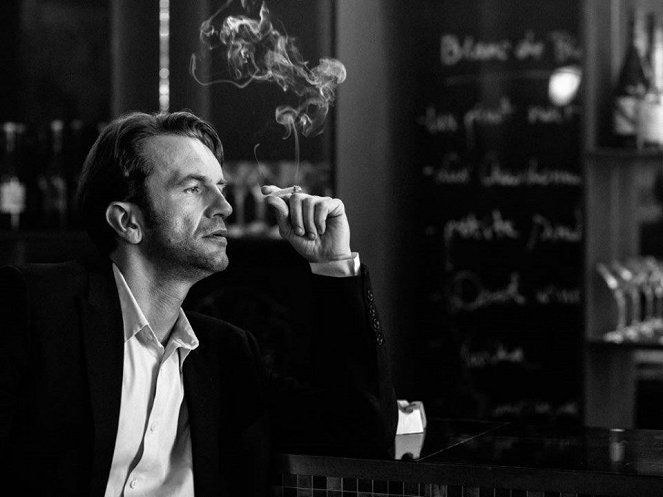Directed by:
Paweł PawlikowskiCinematography:
Łukasz ŻalCast:
Joanna Kulig, Tomasz Kot, Borys Szyc, Agata Kulesza, Cédric Kahn, Jeanne Balibar, Adam Woronowicz, Adam Ferency, Dražen Šivak, Slavko Sobin, Aloïse Sauvage (more)VOD (1)
Plots(1)
In the ruins of post-WWII Poland, pianist Wiktor (Tomasz Kot) is commissioned by the Soviet state to form a musical ensemble to help rekindle national pride. Whilst touring the villages in search of talent he meets the beautiful Zula (Joanna Kulig, in a luminous star-making turn), a fiery and charismatic singer with a past, and the two fall passionately in love. When a performance in Berlin offers the pair an opportunity for escape to the West, a last-minute decision finds them stranded on either side of the Iron Curtain. As the years march on, Wiktor and Zula - whether through political circumstance or personal impetuosity - struggle to find their moment in time... Spanning 15 years across Warsaw, Berlin, Paris and Yugoslavia, and inspired by the lives of the director’s own parents, Cold War meticulously recreates the era with virtuosic black-and-white cinematography, and an extraordinary soundtrack that is used judiciously to signify the passage of time and shifting relationships. Warmly lyrical, impossibly romantic and visually stunning, Cold War was one of the films of the year. (Palace Films)
(more)Videos (5)
Reviews (12)
With Ida, Pawlikowski tested my patience with his intimate approach a while ago, but my first encounter with his work was definitely not unpleasant. Cold War is a film of a different caliber in that it is easy to watch without any issues, and it is accessible and pleasant in its own way. The question is whether this characteristic would please Pawlikowski. After all, he clearly wanted to make a drama that would make a more significant statement about his time period and the systems that dictated the direction in Europe back then. The title itself testifies to that. He wanted to show the malice of the great events that dictate the fate of the loving couple, exposing the unfortunate individuals. Unfortunately, he failed to do that, and if you want films that significantly reveal the mechanisms of social movements, you have to look elsewhere, primarily because Pawlikowski chose the wrong protagonists. In order for them to miss each other, they don't need the adversity of political systems because they are perfectly capable of creating obstacles themselves. They are the kinds of people who can keep an entire army of relationship coaches occupied and driven to despair, and at the end of their journey, they have a series of love acrobatics and probably several failed marriages behind them. They confuse love with infatuation and fail in a number of basic skills necessary to maintain a long-term partnership. Cold War is worth seeing because of its cinematography and especially for its musical dimension. Pawlikowski knows the craft of filmmaking, and he also chose solid performers for the main roles. It's just that it lacks the depth he wanted to work with. Overall impression: 75%.
()
Cold War is a wannabe artsy melodrama in which the central duo, instead of being together,
repeatedly and VOLUNTARILY choose different life paths so that they can regret it later. And then
they just happen to meet occasionally over the years to ask each other how they are doing. Plus, it’s
an emotion-free movie that looks like it doesn’t want you to experience their love and does not need
you to understand all of the decisions they make. A melodrama about a pair as black and white as its
pretty 4:3 aspect ratio, for which I’m giving it the third star. Cold War is a cold film. [Cannes]
()
This is a visually attractive melodrama about two people fated to love each other, set during the times of Stalinism in Poland. It is beautifully shot, but the screenplay does not shed enough light on the motivations of the two main characters - especially why they both keep saying how much they love each other, and yet every time they briefly live together they can hardly stand each other, constantly on and off, which means they, therefore, can not stay together. The "adversity of fate" seems like quite a convenient excuse there. It reminded me of the old Finnish drama Something in People, where there is a peculiar romance going on over a period of several years between the two main protagonists, who were also attracted to each other in a tragic way.
()
What begins as "Polish People's Republic Searches for a Superstar" smoothly transitions into a love story, which, with its fragmented nature, resembles the hazy mist of memories of a couple who didn’t want to live in oppression but didn’t know how to live in freedom. Vivid black-and-white, captivating doses of folklore, Geislerová crossed with (forgive the spoiler) the mother of Bond’s only child, and when the breeze sweeps over the tips of wheat in the fields - these are elements that elevate the otherwise rather banal story to a higher level for those unfamiliar with the experience. Thanks for the nod to Tom the cat, which added a bit of lightness. "Is you is or is you ain't my baby."
()
Polish folk songs were never so sexy. Besides that, Pawlikovski’s balladic overview of the history of music and of Europe captivated me with its high-contrast black-and-white camera work and highly economical storytelling with sharp cuts, sudden jumps in time and numerous meanings communicated via the mise-en-scène without verbal explanation, thanks to which the film is able to cover some fifteen years of history in just under ninety minutes. At the same time, the atmosphere remains consistent, while the musical style changes along with the degree of frustration felt by the protagonists, who still do not have that which they desire. Cold War is obviously a film under the spell of post-war European cinema (in addition to its academic format, this is also apparent in the number of European countries and languages represented) – not by any means only Soviet-style musicals such as Tomorrow, People Will Be Dancing Everywhere against which it is critically defined – with which it has much more in common than with reality. At the same time, however, the plot is complicated and lovers are separated by the political repression of the time that discomfited artists in communist countries had to face. The major simplification of socio-political contexts, psychological flatness of the characters and bold stylisation serve well the timeless fatalistic story of unrequited love (in whose case it does not matter too much that we are watching only certain [arche]types instead of full-blooded heroes), but as a statement on a particular time and the people of that particular time, which it also wants to be, Cold War fails for the same reason. But if you want to see a very obliging art film that does not put numerous obstacles in the viewer’s way, it is unlikely that you will see anything nicer in the cinemas. 70%
()



Ads